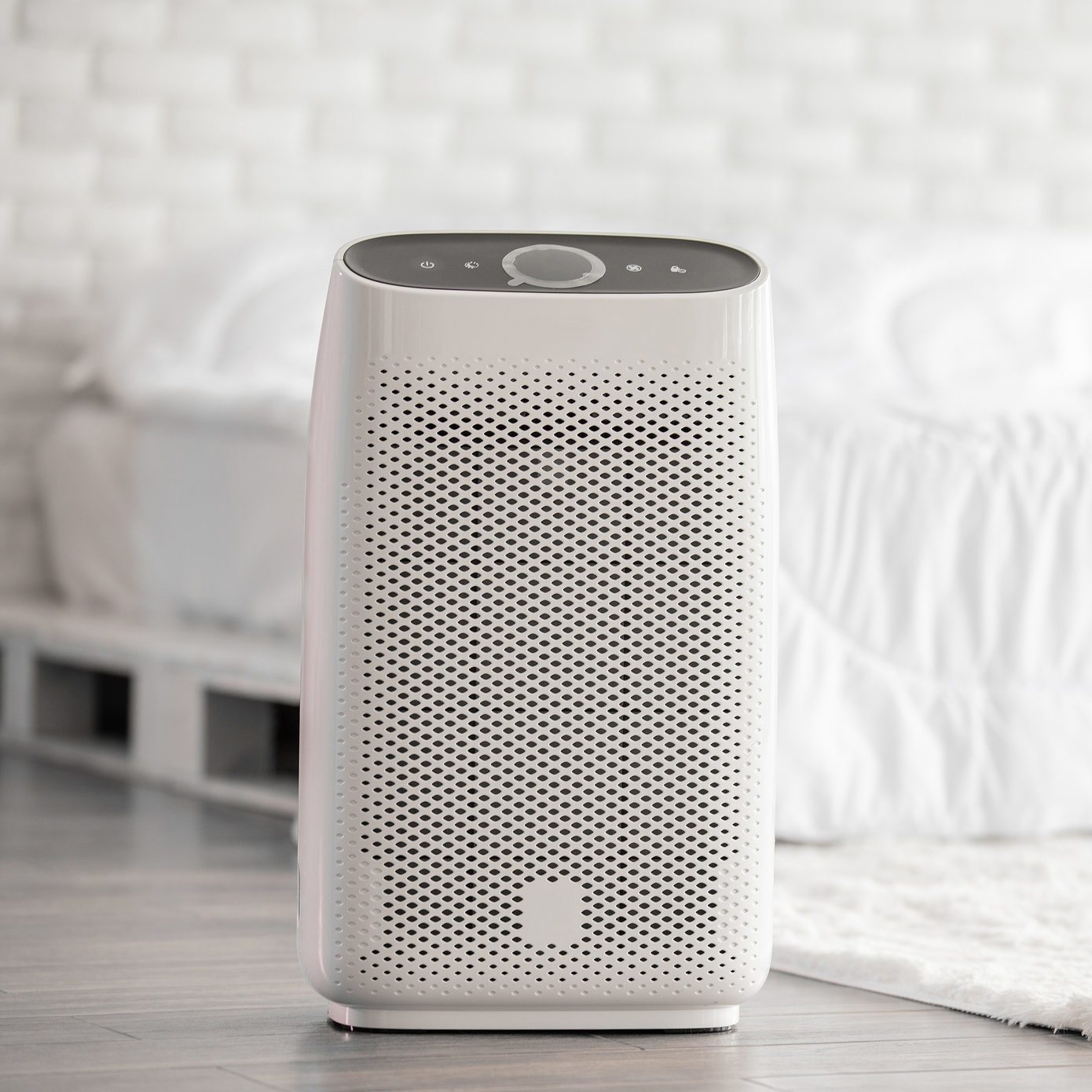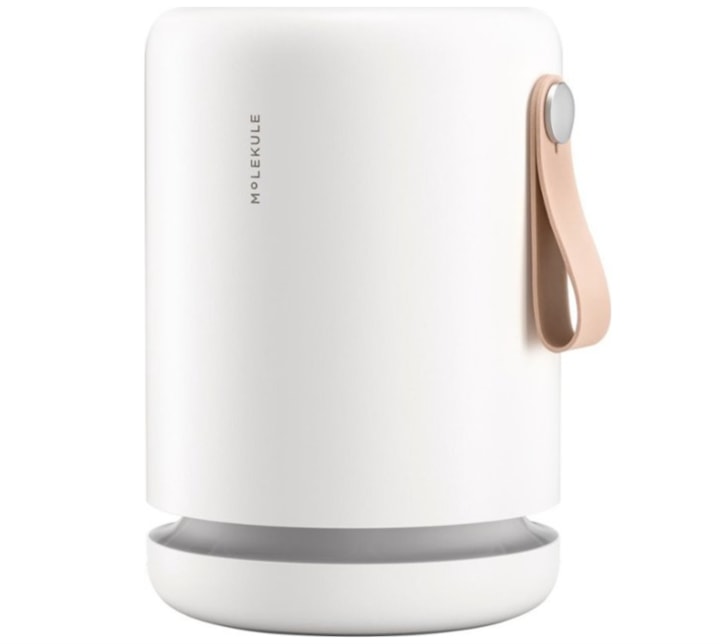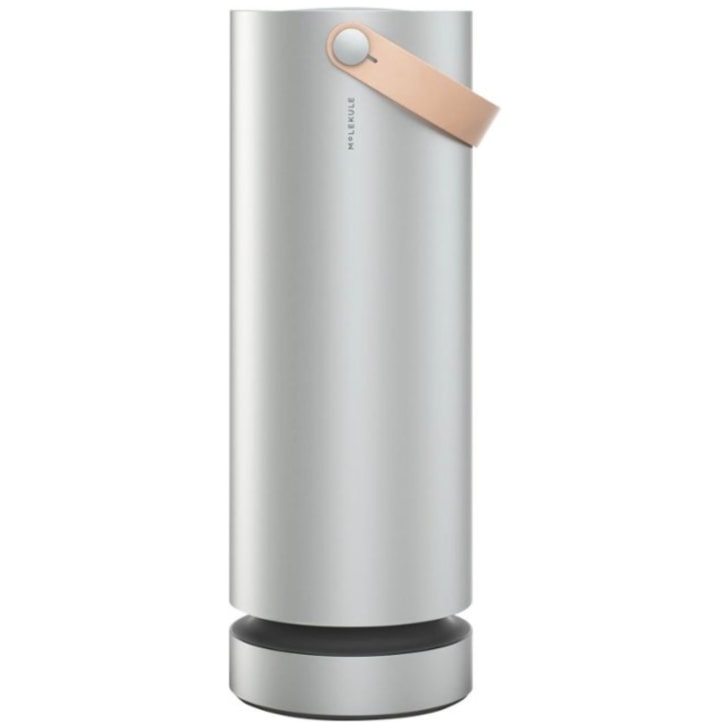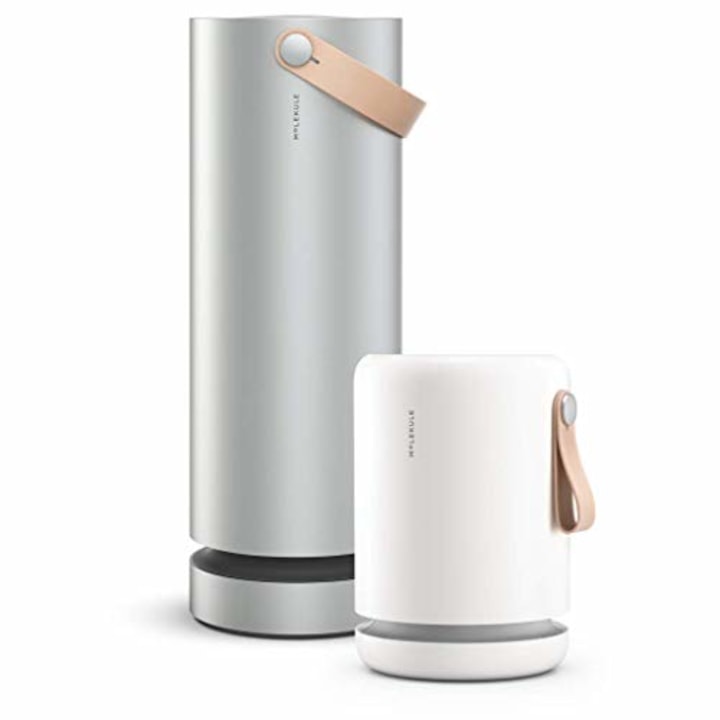10 Best Air Purifiers for 2021—Air Purifiers for Germs, Allergens & More - Reader's Digest
10 Best Air Purifiers for 2021—Air Purifiers for Germs, Allergens & More - Reader's Digest |
- 10 Best Air Purifiers for 2021—Air Purifiers for Germs, Allergens & More - Reader's Digest
- If You Have an Air Purifier at Home, Your COVID Risk May Be Higher - Best Life
- Molekule air purifiers are on sale: Here's where to shop - NBC News
| 10 Best Air Purifiers for 2021—Air Purifiers for Germs, Allergens & More - Reader's Digest Posted: 27 Jan 2021 02:12 PM PST  Clear the air—literallyThe coronavirus pandemic has changed many things about how we live our daily lives. For starters, we're wearing face masks, shopping for groceries online, and, for many of us, working from home. We've also become more hygiene-conscious and very aware of the different methods of germ transmission, including via respiratory droplets. While the CDC is currently examining how long these droplets can survive in the air, it's clear that airborne transmission (especially in enclosed, crowded spaces with little ventilation) plays a big role with COVID-19. To reduce the potential spread, you might be wondering if you should invest in one of the best air purifiers on the market—and you're not alone. Air purifier sales have risen over the past year and are showing no signs of slowing down; in fact, they are projected to grow by more than $8 billion over the next three years. While air purifiers may able to capture bacterial and viral particles that are 0.3 microns or larger, that's not the only reason to buy one. You might simply want to deal with the dusty, dank air in your home. "The air inside your home can actually be more polluted than outdoor air," says Melanie Carver, chief mission officer for the Asthma and Allergy Foundation of America (AAFA). "We spend more than 90 percent of our time indoors, and that percentage is likely even higher given the additional amount of time most of us are spending inside due to the COVID-19 pandemic." Air purifiers can help reduce indoor air pollution by removing tiny particles, such as dust mites, pet dander, volatile organic compounds (VOCs), odors, pollen, and air pollution from outside. All of this can particularly help people who suffer from allergies. But before you buy, there are a few things you need to know. |
| If You Have an Air Purifier at Home, Your COVID Risk May Be Higher - Best Life Posted: 29 Jan 2021 10:59 AM PST While much has been made about air purification techniques potentially helping to mitigate COVID transmission indoors, new research suggests that, in some cases, air purifiers may actually increase the spread of COVID. Read on to discover if what you're doing to protect yourself at home could actually be putting you in harm's way. And for a very different factor that could help keep you safe, check out If You Have This in Your Blood, You May Be Safe From COVID, Study Says. According to a Jan. 26 study published in the journal Physics of Fluids, air purifiers may actually make the spread of contaminated respiratory droplets in enclosed spaces worse. In the authors' model, which looked at respiratory illness transmission rates in a simulated elevator, they found that while air purifiers do move viral particles, they do little to reduce a virus' transmissibility. "An air purifier inside an elevator alters the air circulation significantly but does not eliminate airborne transmission," said Dimitris Drikakis, PhD, co-author of the study and a professor at the University of Nicosia, Cyrpus' Medical School and School of Sciences and Engineering. While a larger number of infected people in a confined space was positively associated with increased transmission rates, air purification methods may still potentially increase the likelihood of new infections, even with low numbers of infected people in a given area. "Our results show that installing an air purifier may increase the droplet spread," explained Drikakis. However, using an air purifier isn't the only potentially serious mistake you could be making amid the pandemic; keep reading to discover which other seemingly innocuous behaviors could be putting your health at risk. And if you want to play it safe when you're out and about, beware that Doing This to Your Mask May Make It Protect You Less, Experts Warn.
If you're in a car with people outside your household, it's important to not only keep a mask on throughout the duration of your trip, but keep the windows open, too. In August, Anthony Fauci, MD, chief medical adviser to President Joe Biden, said, "Even though the person who's driving the car and me both have masks on, I keep the masks on and keep the windows open." However, opening the window next to you may not be the best course of action. According to a research article published in the Jan. 1 issue of Scientific Advances, researchers found that the most effective way to limit person-to-person transmission inside a car is to have the windows furthest from both the driver and passenger open. And for insight into the long-term effects of COVID, check out You May Not Ever Be Able to Do This After Surviving COVID, Study Warns.
While wearing a mask may be essential in terms of stopping the spread of COVID, wearing the wrong type of mask could be putting you in harm's way. According to the Centers for Disease Control and Prevention (CDC), vented masks "may not prevent you from spreading COVID-19 to others. The hole in the material may allow your respiratory droplets to escape." And for more protective measures to avoid, find out why The CDC Warns Against Using These 6 Face Masks.
Whether you're going to work, school, or the grocery store, it's hard for most people to completely eliminate all contact with others. However, just because you're wearing a mask doesn't mean you have carte blanche to see as many people as you'd like. According to a Jan. 2021 study published in JMIR Public Health and Surveillance, individuals who wore masks regularly but had more in-person contact with others were more likely to develop COVID than those who wore masks less frequently, but saw fewer people. And for the latest COVID news delivered straight to your inbox, sign up for our daily newsletter.
Popping an OTC pain reliever to combat the discomfort associated with your COVID shot may not seem like a big deal, but experts caution against doing so if you want your protection against the virus to last. "We do not recommend premedication with ibuprofen or Tylenol before COVID-19 vaccines due to the lack of data on how it impacts the vaccine-induced antibody responses," Simone Wildes, MD, a member of Massachusetts' COVID-19 Vaccine Advisory Group and an infectious an infectious disease specialist at South Shore Medical Center, told ABC News. And for the latest vaccine news, find out why Dr. Fauci Says Doing This After Getting Vaccinated Is a Huge Mistake. |
| Molekule air purifiers are on sale: Here's where to shop - NBC News Posted: 29 Jan 2021 10:31 AM PST In our coverage on the best air purifiers, Molekule has stood out as a crowd favorite. Rather than the popular and expert-recommended HEPA filter, the brand patented its own filter technology: photo electrochemical oxidation, or PECO. Although this technology is yet to be considered industry standard, it might still be worth considering for your next air purifier. And right now, Best Buy is offering you 30 percent off the brand's latest Air Mini+. LEARN MORE about Molekule's air purifying technology Since the start of the coronavirus pandemic, sales of air purifiers have surged. Although air purifiers are not designed specifically to stop the spread of the coronavirus, there are plenty of benefits to having this device in your home. As Josh Davidson, MD, an allergy and immunologist specialist, previously told us: If you struggle with allergies, asthma or other respiratory conditions, investing in an air purifier would be a smart move. If you're looking to upgrade, today might be a good time to do so and save a few dollars. The Air Mini+ is designed for rooms as large as 250 square feet. The device comes with six months worth of filters and has a filter replacement indicator. It is designed to use less energy so you can run the air purifier all day and night. For shoppers concerned with noisy air purifiers, the Air Mini+ is designed to be whisper-quiet, operating at 30 decibels. Download the Molekule app on iOS or Android to easily check your filter status or control the fan speed from wherever you are. The Molekule Air boasts many of the same features as the Air Mini+, but is intended for larger spaces, up to 600 square feet. It uses two different filters: a pre-filter to catch larger particles like dust or pet hair and the patented PECO filter that is meant to break down bacteria, mold, viruses and other pollutants. The sleek and simple designs of the Molekule air purifiers help them fit into nearly any of your home decor. If you're looking to get more than one air purifier, you can opt for the Molekule Air + Mini Bundle. With one of each model, place the Air in a larger living space like your kitchen or living room, and the Mini in your bedroom or workspace. Catch up on the latest from NBC News Shopping guides and recommendations and download the NBC News app for full coverage of the coronavirus outbreak. |
| You are subscribed to email updates from "best air purifier" - Google News. To stop receiving these emails, you may unsubscribe now. | Email delivery powered by Google |
| Google, 1600 Amphitheatre Parkway, Mountain View, CA 94043, United States | |







Comments
Post a Comment